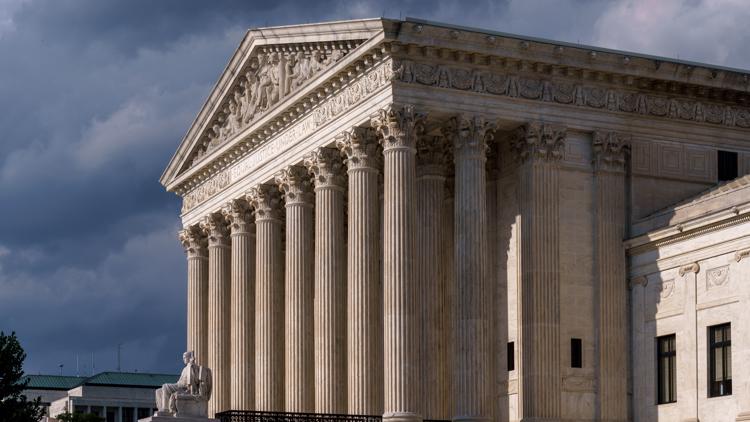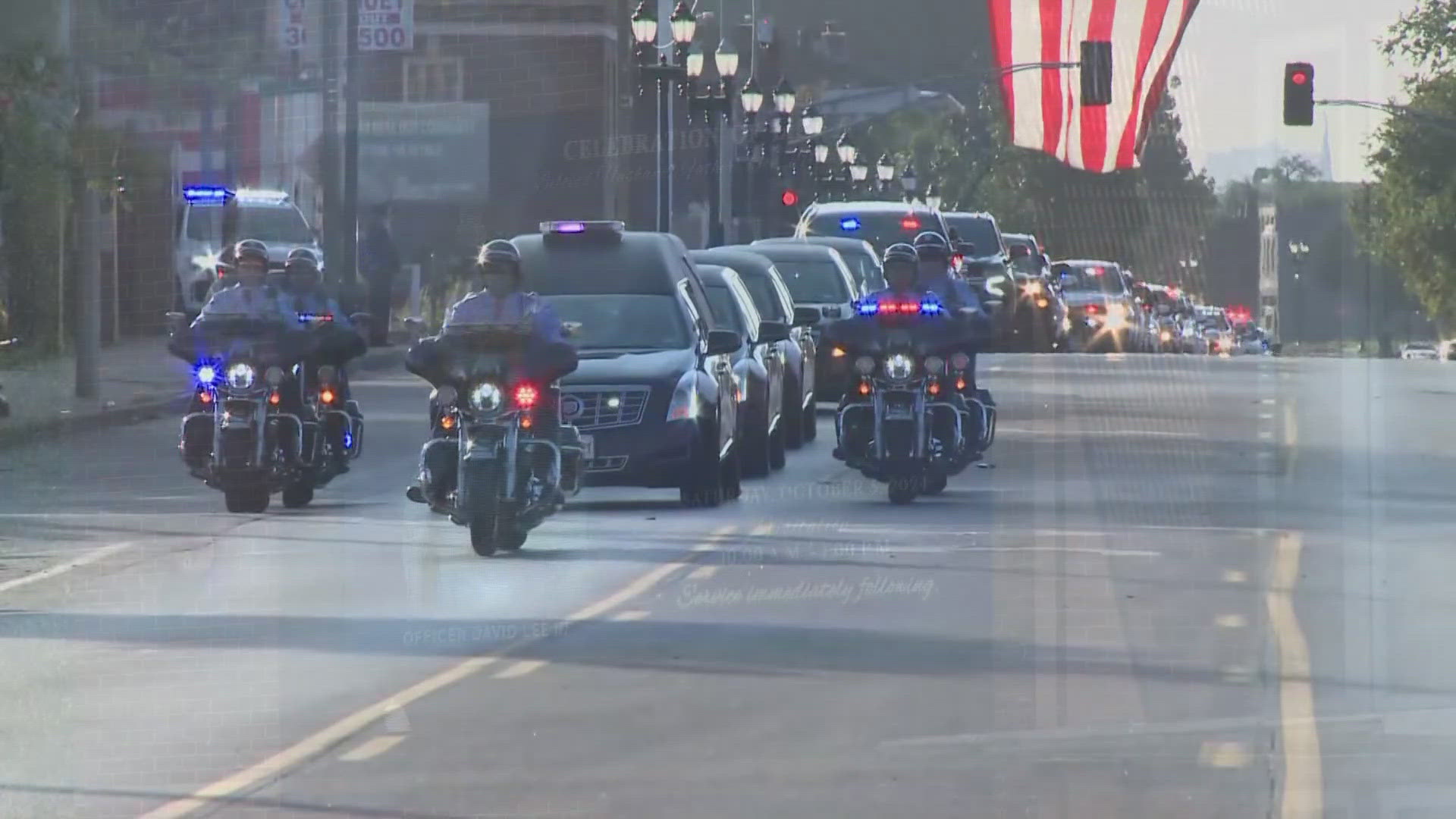ST. LOUIS — The Supreme Court of the United States issued a ruling Monday in favor of a family who believes their son died after St. Louis officers held him down in a prone position in 2015.
The ruling found two lower courts erred in siding with the officers, and ordered the Eighth Circuit to review the lawsuit the family filed against the City of St. Louis once more.
Bryan Gilbert and Jody Lombardo say their son, Nicholas Gilbert, 27, died after St. Louis officers put weight on his back while he was shackled and face down inside a holding cell at the Central Patrol division.
The Eighth Circuit initially ruled in favor of the officers, and the U.S. Court of Appeals affirmed its ruling.
But the U.S. Supreme Court found in favor of Gilbert’s parents Monday and remanded the case back to the Eighth Circuit.
“Record evidence shows that officers placed pressure on Gilbert’s back even though St. Louis instructs its officers that pressing down on the back of a prone subject can cause suffocation,” according to the ruling. “The evidentiary record also includes well-known police guidance recommending that officers get a subject off his stomach as soon as he is handcuffed because of that risk.
“The guidance further indicates that the struggles of a prone suspect may be due to oxygen deficiency, rather than a desire to disobey officers’ commands.”
Jody Lombardo learned of the highest court's ruling in her son's case from 5 On Your Side.
Gilbert had been arrested for trespassing in a vacant building and failure to pay a traffic ticket.
While in jail, police said he was trying to take off his sweatpants and turn them into a noose. Three officers went into Gilbert’s cell Dec. 8, 2015, one grabbed his wrist to handcuff him, but Gilbert began to struggle, according to the ruling. The officers brought Gilbert, who was 5 feet 3 inches and 160 pounds, to a kneeling position over a concrete bench in the cell and handcuffed his arms behind his back, according to the ruling.
Gilbert reared back, kicking the officers and hitting his head on the bench. After Gilbert kicked one of the officers in the groin, they called for more help and leg shackles. Ultimately, six officers moved Gilbert to a prone position, face down on the floor. Three officers held Gilbert’s limbs down at the shoulders, biceps and legs and at least one other placed pressure on his back and torso, according to the ruling.
Gilbert tried to raise his chest, saying “It hurts. Stop,” according to the lawsuit. After 15 minutes of struggling, his breathing became abnormal and he stopped moving. He was pronounced dead at a hospital.
The Eighth Circuit found in favor of the officers, concluding they were entitled to qualified immunity because they did not violate a constitutional right that was clearly established at the time of the incident, according to the ruling.
The family appealed the ruling the U.S. Court of Appeals, comparing their son's death to that of George Floyd, who died while being held in a prone position while handcuffed in Minnesota.
St. Louis city attorneys fired back: "The petition for certiorari in this case is remarkable for its blend of agitprop, distortion of the record, and mischaracterization of the issues. First, the agitprop. The petitioners use published reports regarding the death of George Floyd as a cudgel to try to browbeat this court into reviewing a case that is a straightforward application of basic Fourth Amendment principles. The only things in common between this case and the reports regarding George Floyd are drug use and heart disease."
Reached Monday, a spokesman for St. Louis Mayor Tishaura Jones wrote: "This case has been ongoing for many years, and as party to the suit, the City has no comment."
Justices Samuel Alito, Neil Gorsuch and Clarence Thomas dissented.
The U.S. Court of Appeals for the Eighth Circuit then affirmed the Eighth Circuit’s ruling on different grounds, saying the officers did not apply unconstitutionally excessive force against Gilbert.
His parents took their case to the Supreme Court, focusing on the interpretation of a "struggle to breathe" as "ongoing resistance."
In their petition, the parents told the Supreme Court that other circuit courts recognized that if someone is struggling to breathe, a jury can infer that the person being restrained is fighting for air rather than fighting the officers restraining them.
The Justices wrote: "We express no view as to whether the officers used unconstitutionally excessive force or, if they did, whether Gilbert’s right to be free of such force in these circumstances was clearly established at the time of his death. We instead grant the petition for certiorari, vacate the judgment of the Eighth Circuit, and remand the case to give the court the opportunity to employ an inquiry that clearly attends to the facts and circumstances in answering those questions in the first instance."



